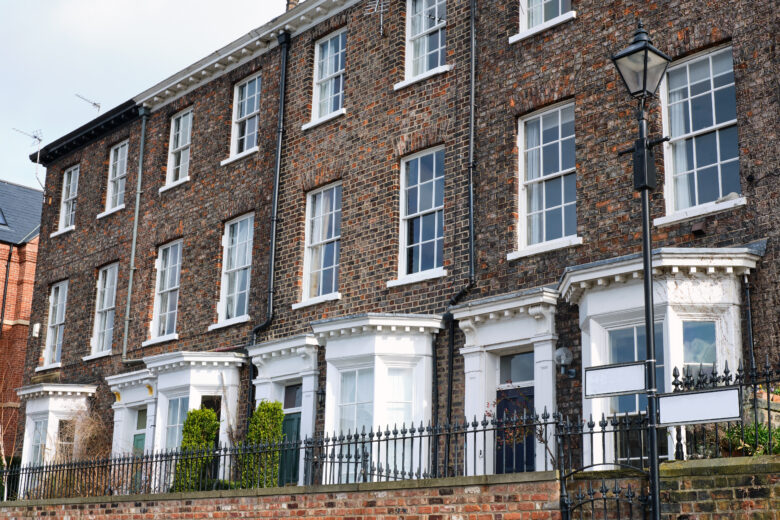
Approaching Your Freeholder for a Lease Extension
When you buy a leasehold property, it’s essential to be clear on how many years are left on the lease as it could impact your ability to sell the property if you allow it to run down too far. Once you have owned your home for two years, you’re legally allowed to extend your lease at any time. While there is a formal route to follow to achieve the extension, you could also informally approach the freeholder at any time to come to an agreement. Both options have advantages and disadvantages, and both will have their own costs, so it’s important to consider which would work best for you.
What is the informal lease extension process?
If you go down the informal route to extend your lease, it’s simply a case of approaching your freeholder and making them an offer. Before doing this, it’s essential to have a lease valuation carried out by a RICS-qualified surveyor – you don’t want to pay more than market value, but nor do you want to offend the freeholder by making a low offer.
As it’s an informal offer, you can request an extension for your preferred time period, rather than the 90 years for a leasehold flat that is standard with a formal extension. If you’re planning on suggesting a longer, or shorter extension, it’s a good idea to ask your surveyor their opinion of the difference this would make to the premium. The freeholder doesn’t have to accept the offer, and they may try to get you to pay a premium to go down this informal route, so if you have all the figures to hand, you can be clear on the best option for you.
If they accept the offer, it’s a case of instructing a solicitor who will then liaise with the freeholder’s solicitor to agree to the new lease. Once everyone is happy, the lease premium is paid to the freeholder and the freeholder’s costs, and the new lease can be registered with the Land Registry.
How does the formal route differ?
The formal route is set out under the Leasehold Reform Housing & Urban Development Act 1993 and allows the leaseholder to add 90 years to what is left on the lease at a ‘peppercorn’ rent – which means no ground rent.
To achieve this, you’ll need a surveyor to value the lease, and you’ll put this in your formal application to be served on the freeholder, called a section 42 notice.
The freeholder then has two months to serve a counter-notice, stating whether they accept the offer or if they want to negotiate on the price. Remember, they cannot refuse to extend your lease; only the premium can be disputed.
Be aware that you’ll be expected to pay the landlord’s reasonable costs in both situations, such as the valuation and solicitor’s fees.
What are the benefits of approaching my freeholder informally?
The informal route can be quicker, cheaper and suit your needs better. When doing it this way, you don’t have to wait two years until you can start the process to get going whenever you want, and you can extend for anything up to 999 years. You also don’t have to pay for things such as the section 42 notice required for a formal extension, and you may be able to negotiate a more favourable deal if you go for the personal approach.
This doesn’t mean that this route is suitable for everyone, though. For one thing, the process can take much longer to complete as there’s no statutory time limit like with the formal approach. Crucially, the freeholder can also use the negotiations to add new clauses to your lease or increase your ground rent. There are also no guarantees that you’ll get the extension after talking, so you could lose time and money trying.
How do I contact my freeholder?
When making your offer, the easiest way to contact the freeholder will be to look at the title register as this will show their postal address. You should be able to find their details on your ground rent receipts.
Do I need a solicitor?
The short answer is yes. Leasehold extensions can be complex, and an experienced solicitor will understand the process and handle the legal side of the extension. Your solicitor will prepare your section 42 notice if you go down the formal route. If there are any inaccuracies in this, the freeholder can apply to a court to have it dismissed, and you won’t be able to use it again for another 12 months. Having a specialist solicitor on hand should reduce the chances of this happening.
How can I keep the costs down?
Extending a lease can be a costly process with legal fees, valuations and admin costs, and the cost of the lease itself. You can do a couple of things to ensure you don’t pay more than you need to.
1. Keep an eye on your lease
The biggest way to make the process more cost-efficient is to begin the extension process well before the lease runs down to 80 years. Remember, as the lease goes down, the cost to extend it will go up, and once it’s below 80 years, you’ll also attract marriage value. If you extend, the freeholder is entitled to 50% of the value that the extension adds to the property. As the extension process can take over a year, be sure to factor this into your planning.
2. Use professionals
Employing experienced surveyors and solicitors is key to managing your costs. A surveyor will provide accurate valuation information to ensure you don’t pay over the odds, and they can also assist with any negotiations. Look for someone with knowledge of leaseholds and the local property market. A solicitor can also help make the process run smoothly and ensure you don’t get hit with unnecessary delays.
The Novello Approach
At Novello, we deliver accurate and timely leasehold valuations from RICS qualified chartered surveyors who genuinely understand the complexity of leasehold properties. Not only will our reports determine the figure you should pay to the freeholder to extend your lease, but they’ll also detail the best- and worst-case scenarios so you can enter into any negotiations with more confidence.
If you’re a leaseholder who wants to find out when it makes the most financial sense to extend your lease, we’re here to help. And we’ll remain on hand throughout the process should you have further questions or issues.
Get started by using our leasehold extension calculator or contact us to find out more.

